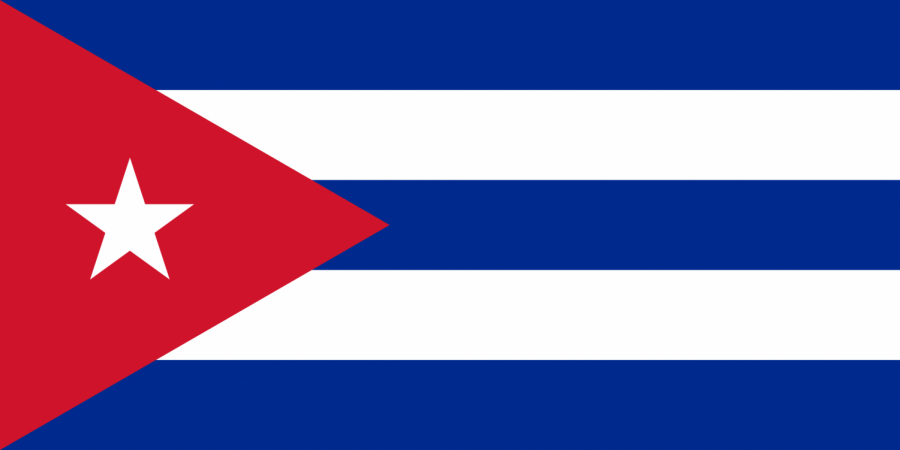Reality of life in Cuba: An interview with Zulan Pino and Heydi Contreras
February 15, 2019
Before moving to Appleton, North graduate Zulan Pino and senior Heydi Contreras lived in Cuba. They graciously shared their experiences and recounted the hardships they faced as citizens of a communist country.
Under the rule of a corrupt and controlling government, Cubans live in constant fear of authority. “It was very hard. The police were watching us all the time. If there was even a little protest or riot, we were arrested. My mother got arrested for three days because she protested. She was thrown in an abandoned building, very far away for home and had to get back herself.” Zulan’s mother was not the only victim of these outlashes; many Cubans are mistreated, imprisoned, and even killed at the hands of the government. Unfortunately, the people in power overlook these atrocities, ignore the injustices, and forget the names and faces of the people they harm. “People can die or be killed in jail, and no one would write a report on their death.”
Outside of the dangerous, political environment and the constant pressure of watchful eyes, Cuban citizens also struggle to maintain basic living standards. Cubans are only allowed to earn ten dollars a month (and given the inflation of the current Cuban economy, $10 is even less than you might think). This “maximum” wage, so to speak, leaves all citizens dependent on the government. Even if someone manages to start a successful business, the government will take away all their hard-earned money, ensuring that no citizen can rise above a certain financial level. The only people capable of becoming wealthy are, of course, those who work for the government. As for the necessities of life, every person is given a pamphlet of free food and supplies that they can “buy” at the grocery store. In actuality, severe restrictions make it impossible for any person to accumulate enough food to comfortably support a family. For example, if someone chooses a piece of fish, they are not allowed to get any chicken. Citizens are only permitted four eggs per week and a piece of bread everyday. As Zulan described, the bread is not like the loaves found in American supermarkets, instead “It was a hard, disgusting, rug-like thing.” Along with poor quality products, a surprising amount of regular foods are not offered in Cuban stores; Heydi and Zulan did not even know about some of the most common fruit. Heydi laughed when she regarded this topic, “There were no such things as strawberries, blueberries, or even apples in our market. They had grapes, but they were very small… and didn’t look good… and were also very expensive.”
Food is not the only necessity people in Cuba struggle to obtain. Clothing is scarce and a majority of the population travels to other places to buy clothes and shoes. Even when relatives outside of the country try to help their family by sending money or other items, their shipments rarely make it to the intended destination. Most likely stolen by the government to be sold in black markets, these packages are just another commodity of life Cubans cannot experience, stained by the omnipresent power of the communist authorities.
Since life is so hard, people tend to be friendly and fun-loving, constantly searching for ways to brighten their world. As Heydi said, “Cubans love to enjoy life. Since it is a struggle to get food everyday and survive, we loved to play board games, play volleyball or soccer, and laugh about our problems. Some people didn’t even work, they just partied everyday. It is the only way for us to keep ourselves going.”
Zulan has lived in America for four and a half years, and Heydi for three and a half. They enjoy everything about America, from the amiable and supportive people to the great food. Specifically, both girls appreciate their phones and can’t get enough of the internet they missed out on for almost eighteen years. They also love to watch TV… well, American TV. Heydi expressed her feelings towards the contrasting Cuban television. “In Cuba there were only five TV stations, and it played boring things. The same shows were played in the morning and in the night. Now in America, we have so many different channels to choose from.” Supernatural and Vampire Diaries are two of the girls’ favorite shows. They also love reading mystery novels.
Heydi and Zulan believe Cuba is still changing for the worse, but are extremely happy that they are no longer experiencing the country’s injustices firsthand. They will continue to protest the Cuban government and will keep sharing their story in hopes that the future will bring a positive ending for their people.


